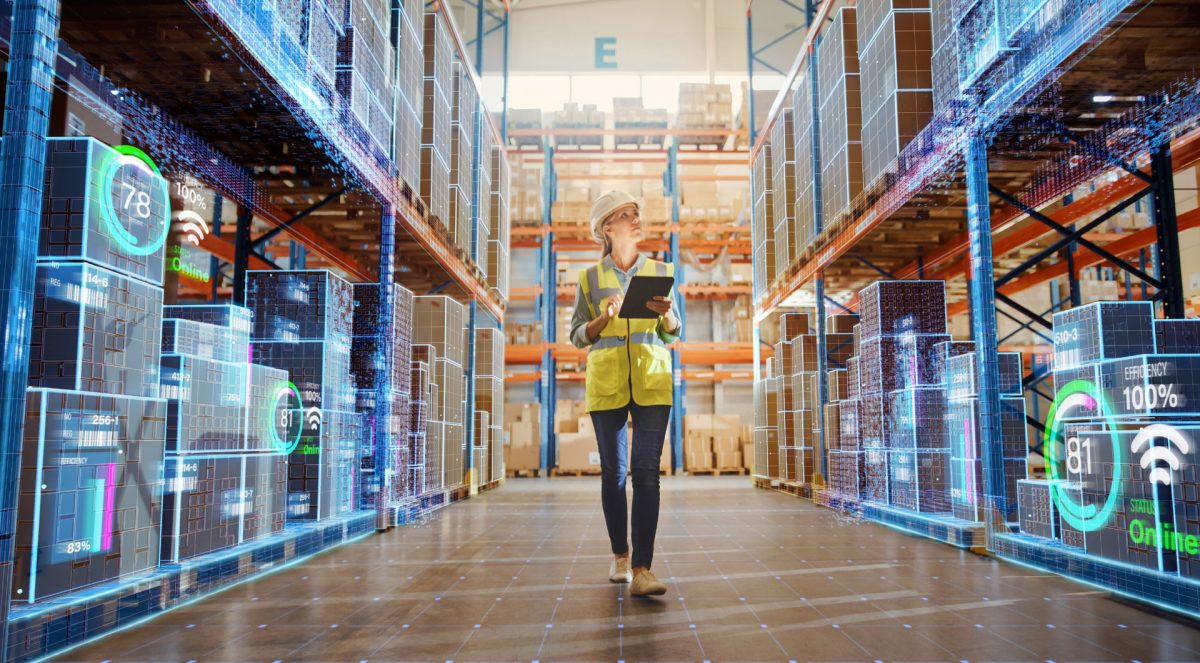Third-party logistics (3PL) plays a crucial role in the rapidly evolving landscape of global supply chains as more businesses acknowledge the significance of digitalization for improving efficiency and productivity. However, a part of this paradigm shift towards a technological leap is adopting Blockchain technology (BCT), which emerges as a potential game-changer. In this blog post, we’ll delve into the significance of Blockchain for the 3PLs.
In the worldwide supply chain landscape, the significance of third-party logistics (3PL) services cannot be overstated, as they play a crucial role in assisting various supply chain entities with distribution tasks. 3PLs enable these entities to focus on their fundamental product development and manufacturing strengths. Nevertheless, some concerns in the current global supply chains necessitate swift digitization.
One of the forerunners in embracing technological advancements within their operations is Third-party Logistics (3PL) providers. Amidst the transformative influence of digital technologies on the global landscape, which includes technologies such as the Internet of Things, Virtual Reality, Augmented Reality, Artificial Intelligence, Machine Learning, and Robotics, a noteworthy addition to this list is Blockchain Technology (BCT).
The size of the Supply Chain Finance Market utilizing Blockchain was assessed at USD 360.75 Million in 2021 and is anticipated to reach USD 13,453.48 Million by 2030, exhibiting a compound annual growth rate (CAGR) of 49.75% from 2023 to 2030.
Blockchain Technology in Logistics
In logistics, Blockchain is a decentralized public ledger system that instantly records all alterations to a document. With this information, you can optimize routes and streamline the delivery process by eliminating unnecessary steps.
Distributed and decentralized ledgers minimize errors and enhance efficiency. Smart contracts empower retailers and logistics firms to establish agreements that automatically dissolve if the specified terms are not met. Such ledger-driven contracts boost transparency and profitability, reducing delivery time and costly errors.
Smart Logistics with the Power of Blockchain
Utilizing Blockchain technology, one of the global retail giants enhanced their supply chain transparency and traced the origin of products. The company recently mandated lettuce and spinach suppliers adopt a Blockchain database. This initiative helped them pinpoint the exact contamination source in case of food-borne illnesses leveraging Blockchain technology.
This step enabled the company to optimize food tracking, traceability, and safety, thus ensuring the quality of its products, leading to cost savings and increased accountability. In the event of any outbreak similar to Ecoli, the retail leader would be able to detect it before the affected foods reach stores, significantly minimizing the risk of contaminated food reaching consumers.
Moreover, the company allows its customers to scan products in-store and instantly access information about them, including their source and the logistics processes involved in their journey from origin to retail outlet.
Also, selecting the appropriate warehouse automation solutions is a better financial choice, resulting in cost savings for the warehouse through decreased errors, fewer injuries, and heightened productivity.
The Game-changing Benefits of Blockchain in Logistics for 3PLs
Blockchain is revolutionizing the global logistics industry, transforming how supply chain functions and access information. Let’s delve into some outstanding advantages of leveraging Blockchain in supply chain management.
• Enhanced Efficiency
Integrating Blockchain technology for the freight and shipping companies played a significant role in enhancing their delivery processes. The adoption of Blockchain offers an efficient means of tracking goods, potentially elevating productivity and optimizing supply chains through swifter and more cost-effective deliveries. Moreover, it elevates the traceability of goods, facilitates improved communication between partners, and streamlines access to financial resources. The decentralized nature of Blockchain eliminates the necessity for intermediaries in payment processes, further streamlining transactions.
• Indisputable and Secure
Blockchain technology facilitates the monitoring of product exchanges throughout the supply chain. Following the successful exchange of goods and the execution of smart contracts, the data is recorded in the public or private Blockchain, accompanied by algorithmic signatures that are inherently tamper-proof. Concluding this process, Blockchain employs hash functions, representing unique mathematical data fingerprints. The transaction data related to the supply chain and details about the contributors and timestamps are preserved. Anyone with Blockchain access can follow this information, and it can also be shared with customers, enhancing transparency for end-users.
• Accelerated Payment Process
Blockchain meticulously documents all communication exchanges among all participants in the delivery process, ensuring trackability of every action. Its robust security features enhance payment security and facilitate the prompt identification of forged information. The decentralized structure of Blockchain contributes to a reduced risk of fraud or errors in money transfers. Payments are automatically disbursed leveraging smart contracts. Once the buyer fulfills all the specified consumer criteria, the payment and invoice management processes are streamlined and refined.
Conclusion:
To sum it up, Blockchain technology (BCT) offers a reliable platform for users to update various aspects, including the financial standing of vendors, payment terms, pricing, quality standards, service specifications, delivery requirements, and conflict resolution procedures. The shared data involves multiple stakeholders within the supply chain.
Blockchain enables logistics and supply chain management companies to enhance efficiency, cut costs, and generate additional revenue by innovating new products and services when deployed effectively. Nevertheless, numerous enterprises face challenges in implementing the technology accurately, primarily due to a lack of comprehensive understanding.
However, you can also outsource your supply chain management to a professional third-party logistics provider to focus on your core competency. Contact XPDEL to learn how we can help you with Blockchain adoption for cost-effective logistics.
About XPDEL:
XPDEL helps eCommerce brands accelerate their growth, empowering them with multi-channel fulfillment, whether shipping directly to consumers, delivering to businesses, or selling through retail stores. We are founded and operated by veterans with experience from Amazon, FedEx, UPS, JDA, Walmart, Target, and other leading companies in eCommerce and Retail. Guided by these experts, we provide customer experiences that help you grow your business.

